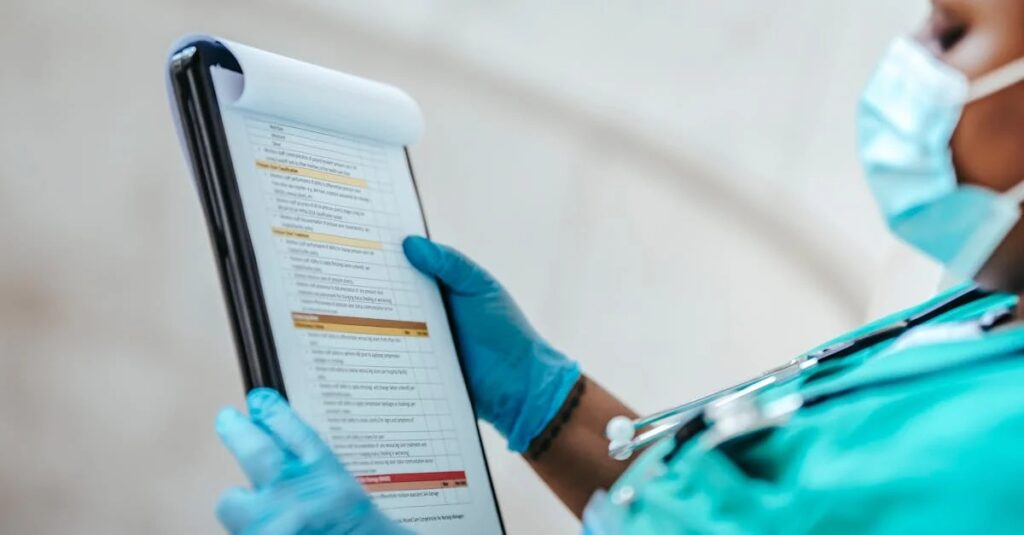Business travel can be both exciting and daunting. While it offers opportunities for networking and growth, it also comes with its own set of risks. Ensuring safety while on the road is crucial for every traveler, whether they’re heading to a nearby city or flying across the globe.
A well-thought-out safety checklist can be the difference between a smooth trip and a stressful experience. By taking the time to prepare and stay vigilant, professionals can focus on their objectives without unnecessary distractions. This article outlines essential safety tips that every business traveler should consider before embarking on their journey.
Business Travel Safety Checklist
Business travel entails navigating various opportunities and challenges. Prioritizing safety is crucial for professionals to maintain focus and productivity during their trips.
Importance of Safety in Business Travel
Safety in business travel ensures personal well-being and promotes effective performance. A secure environment fosters confidence, enabling travelers to engage fully in meetings, networking events, and other professional activities. According to a study by the Global Business Travel Association, 62% of business travelers express concerns regarding their safety while traveling. Addressing these concerns through proper safety measures increases peace of mind and overall satisfaction during the journey.
Common Risks Faced by Business Travelers
Business travelers encounter several risks, including:
- Health Risks: Exposure to illnesses, ranging from foodborne pathogens to airborne viruses, can diminish a traveler’s ability to perform.
- Environmental Risks: Natural disasters, such as earthquakes or hurricanes, pose significant threats depending on geographical locations.
- Crime Risks: Theft, scams, and harassment can occur, particularly in unfamiliar destinations with higher crime rates.
- Transportation Risks: Accidents or delays with public transport can disrupt schedules and lead to missed opportunities.
- Cultural Risks: Misunderstanding local customs or laws can lead to unintentional offenses, affecting both personal and professional relations.
Mitigating these risks requires awareness and preparation, emphasizing the necessity of a comprehensive safety checklist.
Essential Components of a Business Travel Safety Checklist
A comprehensive business travel safety checklist contains several essential components that enhance safety and reduce risk. Proper preparation ensures a smoother, more secure travel experience.
Pre-Travel Preparations
- Research Destination: Understand local customs, laws, and safety statistics. This includes reviewing travel advisories from government agencies such as the U.S. Department of State.
- Health Precautions: Schedule necessary vaccinations based on destination requirements. Review health risks, including any prevalent diseases, and pack appropriate medications.
- Travel Insurance: Purchase travel insurance that includes coverage for medical emergencies, trip cancellations, and lost belongings. Verify policy details and confirm coverage limits.
- Emergency Contacts: Compile a list of emergency contacts, including local authorities, the nearest embassy, and business associates. Share this information with trusted individuals back home.
- Itinerary Sharing: Provide a detailed itinerary to family or friends. Include flight details, hotel addresses, and scheduled meetings to enhance accountability.
- First Aid Kit: Include basic medical supplies, such as antiseptic wipes, adhesive bandages, and pain relievers. Ensure the kit addresses any personal medical needs.
- Medication: Pack enough prescription medications for the entire trip, along with a doctor’s note outlining the necessity of these drugs. Store them in original containers to avoid issues at security checkpoints.
- Local Currency: Carry a small amount of local currency for immediate expenses upon arrival. Use a secure wallet for safekeeping.
- Personal Safety Devices: Bring items such as pepper spray or a personal alarm, if legal at the destination, to enhance personal safety.
- Travel Locks: Use TSA-approved locks for luggage and hotel rooms to protect belongings. Additionally, consider using a travel-safe bag for electronics.
- Chargers and Adapters: Pack necessary chargers for devices and any travel adapters required for different outlets and voltages.
This structured approach to business travel safety ensures professionals can focus on their objectives while minimizing risks.
Location-Specific Safety Considerations
Understanding location-specific safety considerations enhances business travel security. Familiarity with local risks and protocols helps travelers navigate environments confidently.
Researching Destination Safety
Researching destination safety features thorough examination of crime rates, health risks, and natural hazards. Travelers should utilize reputable sources like government travel advisories or the World Health Organization. Prioritize getting to know local customs and cultural norms that may affect interactions, ensuring respectful engagement. Identifying safe neighborhoods, recommended hotels, and secure transport options prevents potential hazards. Keep informed about local laws, as ignorance can lead to unintended violations.
Local Emergency Contacts and Procedures
Maintaining access to local emergency contacts ensures quick response in crises. Collect contact information for local law enforcement, medical facilities, and embassies or consulates upon arrival. Familiarize yourself with emergency procedures specific to the destination, including evacuation routes and disaster response protocols. Save important numbers in mobile devices and distribute printed copies among colleagues. Knowing these details promotes a proactive approach to safety, minimizing risks associated with unexpected situations.
Health and Wellness Tips for Travelers
Travelers face unique health challenges on the road. Prioritizing wellness can enhance overall travel experiences and maintain productivity.
Staying Healthy on the Road
Staying healthy requires attention to nutrition, hydration, and exercise.
- Hydration: Drink water regularly, especially in dry climates or during long flights. Aim for at least 8 ounces of water every few hours.
- Nutrition: Choose balanced meals with fruits, vegetables, and whole grains. Avoid excessive consumption of processed foods.
- Exercise: Incorporate physical activity into daily routines. Simple activities like walking or stretching in hotel rooms help combat fatigue and stiffness.
- Rest: Get adequate sleep by maintaining a consistent sleep schedule. Aim for 7-9 hours each night, and consider using sleep masks or earplugs for better rest.
- Preparation: Pack healthy snacks, like nuts or granola bars, for travel days to prevent unhealthy choices.
Mental Well-being During Business Travel
Mental wellness impacts performance and enjoyment during business travel.
- Mindfulness: Practice mindfulness techniques, such as deep breathing or meditation, to reduce stress and enhance focus. Aim for 10 minutes of mindfulness daily.
- Social Connections: Maintain communication with family and friends during trips. Regular contact alleviates feelings of isolation.
- Downtime: Schedule time for relaxation or hobbies. Prioritizing personal interests fosters balance while traveling.
- Limit Screen Time: Reduce exposure to screens before sleep. Engaging in calming activities can promote better sleep quality.
- Seek Support: If feeling overwhelmed, consider reaching out to colleagues or a professional for support. Sharing experiences can provide comfort and solutions.
Prioritizing safety during business travel is essential for maximizing productivity and peace of mind. A comprehensive safety checklist empowers travelers to navigate potential risks effectively. By preparing in advance and staying informed about destination-specific safety considerations, professionals can focus on their objectives without unnecessary distractions.
Incorporating health and wellness strategies further enhances the travel experience, ensuring that individuals remain energized and engaged. With the right tools and knowledge, business travelers can transform their journeys into opportunities for growth and connection while minimizing the chances of encountering challenges. Embracing a proactive approach to safety not only fosters confidence but also paves the way for successful and enjoyable business trips.

